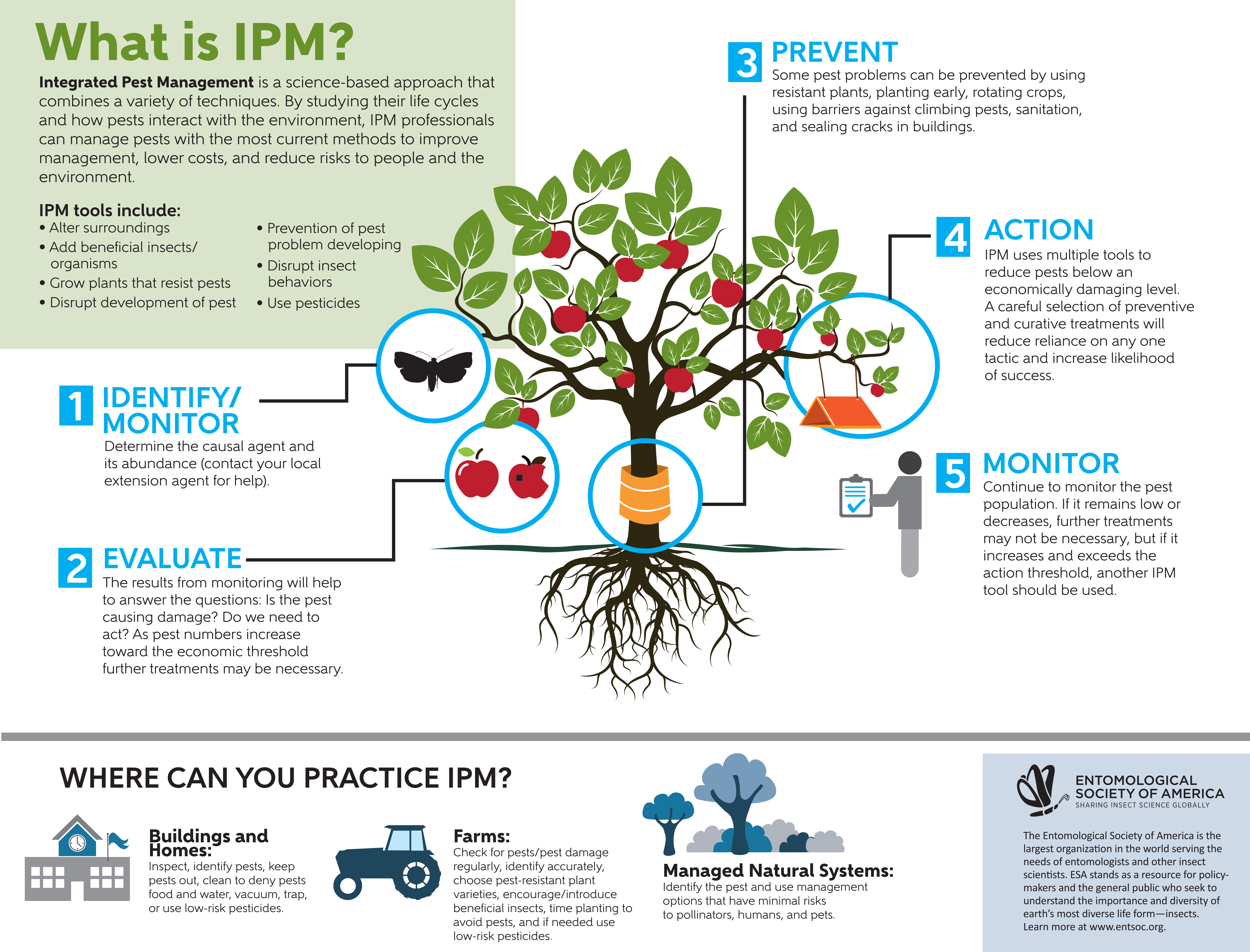Pest-Proofing Your Garden: Tips For Keeping Exterior Pests At Bay
Pest-Proofing Your Garden: Tips For Keeping Exterior Pests At Bay
Blog Article
Content Written By-Castaneda Sharma
Visualize your yard as a haven, a location of serenity and appeal. Nonetheless, the existence of outside bugs can promptly interrupt this idyllic picture. Suppose there were simple yet efficient methods to maintain these undesirable site visitors away and shield your yard sanctuary? By following a few sensible suggestions and carrying out natural techniques, you can produce a harmonious outdoor space where your plants can thrive undisturbed.
Natural Pest Deterrents
To keep insects away from your garden naturally, plant aromatic natural herbs like mint and lavender. Learn Additional include appeal to your garden yet also work as efficient bug deterrents. Bugs like mosquitoes, flies, and also some garden-damaging bugs are warded off by the solid aromas emitted by these herbs. Just positioning them purposefully around your garden can assist create an all-natural obstacle against unwanted bugs.
Along with mint and lavender, consider growing other herbs like rosemary, basil, and lemongrass to additionally boost your yard's pest-proofing abilities. These natural herbs not just function as natural repellents yet also have the added advantage of being useful in food preparation or crafting self-made treatments.
Strategic Plant Positioning
Take into consideration the format of your yard and the types of plants you have to strategically put them for maximum pest-proofing efficiency.
Beginning by grouping plants with similar resistance to bugs with each other. By doing this, you can produce an all-natural barrier that prevents parasites from spreading out throughout your yard.
Furthermore, putting pest-repelling plants like marigolds, lavender, or mint near more at risk plants can assist safeguard them. Tall plants, such as sunflowers or corn, can serve as a guard for much shorter plants versus insects like rabbits or ground-dwelling insects.
Bear in mind to leave adequate area in between plants to enhance air flow and reduce the danger of conditions that pests may lug.
In addition, consider growing strong-smelling herbs like rosemary or basil near vulnerable plants to perplex pests' detects and make it harder for them to find their targets.
Effective Bug Control Approaches
For combating yard insects efficiently, implementing a multi-faceted pest control strategy is essential. Start by motivating natural predators like birds, ladybugs, and praying mantises to aid maintain pest populations in check. Introducing plants that attract these valuable bugs can aid in pest control. Furthermore, exercising https://edwinbwrke.aboutyoublog.com/27125130/historic-structure-preserves-beauty-and-safety-with-efficient-termite-monitoring-approaches by eliminating debris and weeds where parasites may hide can make your yard much less welcoming to unwanted site visitors.
Consider making https://headlines.peta.org/help-animals-used-festivals-fairs/ of physical barriers such as row cover fabrics or netting to shield prone plants from insects like caterpillars and birds. Applying natural chemicals like neem oil or insecticidal soap can also be effective against specific insects while being less harmful to valuable bugs and the setting. It's crucial to revolve your plants each period to avoid the build-up of insect populations that target specific plants.
Consistently evaluate your plants for indicators of parasite damages so you can take action without delay. By incorporating these approaches and staying cautious, you can effectively manage garden insects and enjoy a successful, pest-free yard.
Verdict
So, there you have it - with the right approaches, you can keep pesky outside bugs away from your yard and help your plants flourish.
Did cockroach exterminator cost know that planting mint has been shown to drive away insects and other pests, minimizing the need for harmful pesticides by approximately 60%?
By integrating natural deterrents and wise growing strategies, you can create a beautiful and pest-resistant garden oasis for you to enjoy.
